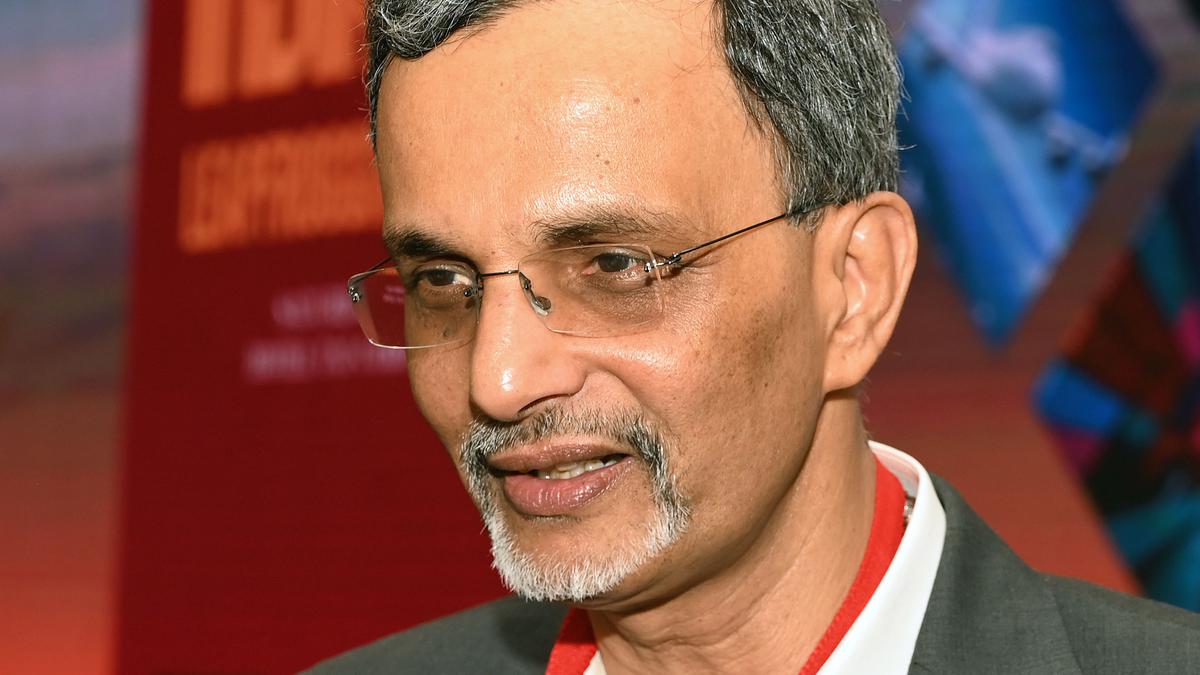
V. Anantha Nageswaran, Chief Economic Advisor. File.
| Photo Credit: Bijoy Ghosh
Chief Economic Advisor V. Anantha Nageswaran on March 14 stated he’s “worried” over retail traders’ play in dangerous Futures and Options (F&O) section in the hunt for immediate income.
Speaking at a convention organised by capital markets regulator Sebi and NISM, Nageswaran stated the largest menace to sustainable capital formation and in addition sustainable financial progress is the “short-termism” in attitudes that the nation is bothered with.
Bemoaning the “furore” brought on each time, there’s a dialogue on permitting company teams to advertise banks regardless of the necessity for capital in a rising financial system, Mr. Nageswaran stated India Inc must mirror on the state of company governance practices and analyse its personal conduct.
“The biggest risk for sustained capital formation and sustained economic growth is… in our short-termism,” he stated.
He added that it’s “puzzling” to see {that a} nation in any other case blessed with a “deep spiritual heritage and wisdom” is definitely deciphering mindfulness and residing within the current within the incorrect methods.
Mr. Nageswaran rued that even now, individuals are mentioning good-looking progress in F&O volumes, regardless of SEBI’s personal research suggesting that 90% of trades within the riskier section resulting in losses for traders.
“Our actions make me worry that we may be interpreting mindfulness and living in the present as being myopic,” he stated, making it clear that these two ideas stress on performing one’s responsibility and obligations with out excited about the fruits of the actions.
He stated there’s a want to alter the outlook from a behaviourial perspective to attain objectives like long-term capital formation and progress.
Mr. Nageswaran rued that there’s an “adversarial” angle amongst many stakeholders in terms of regulators, whereby individuals overlook the very fact a regulator’s job is to have a long-term view of issues and “providing counterbalance for instant gratification or myopia”.
“The underline focus that the regulators have is to ensure that we stay stronger for longer rather than get caught up in the immediate euphoria of our growth rates, market valuations,” he stated.
Amid considerations that the exercise within the F&O section is fuelled by these looking for fast income, he stated the rising publicity of small traders within the section “is a worry because we don’t want to go through boom and bust cycles again and again”.
Mr. Nageswaran stated the financial system is more likely to develop 7% in FY25 as effectively, which can make it the third 12 months in a row when the GDP has grown at over 7%.
Stating that capital formation and financial progress are interdependent, whereby one feeds into one other, he stated the one mantra for policymakers in such occasions is to not be typical and described India’s prudent response to the Covid disaster as a working example.
However, sustaining excessive progress efficiency has been “elusive” for India, which has had quick intervals of excessive progress which might be sometimes adopted by an extended interval of balancesheet restore, dud mortgage cleansing for lenders, and many others, he stated, reminding that “we need to keep in mind that China grew around double digits for three decades”.
“There is a need to ensure that we don’t indulge in excess lending or excess borrowing in the current cycle as well”, he stated, including that we have to make detailed plans with projections on progress, capital required, the way it will come, how a lot as debt and the way a lot as fairness.
Banks additionally must be adequately capitalised to fund the expansion wants of the financial system, and company possession of banks must be allowed if the banks are to get the capital, he stated.
“Why is it a taboo to even discuss corporate ownership of banks? The fact that a mere discussion of the idea of licensing of banks to corporate houses creates such a backlash or a furore is indeed a cause for reflection on the part of the corporates too,” he stated.
“It is also unfortunately a reflection on the overall state of corporate governance in the country,” Mr. Nageswaran stated.
Source: www.thehindu.com



